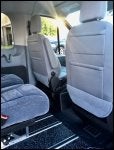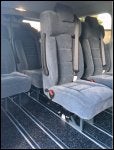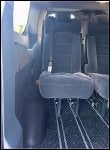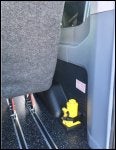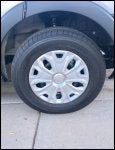Do you experience the highway-speed hum, vibration or droning noise in your Transit?
I just went through the vibration and humming noise thread collecting bits of data looking for a pattern. I have found just enough to see hints of something, but no smoking guns yet, I need more data. If you have the problem or think you do, it would be super helpful if I had:
- Model Year
- Wheelbase
- Engine
- Rear drive ratio
- Speed range where you hear the noise
<!-- BEGIN TEMPLATE: dbtech_usertag_mention --> @BrianK*1954 <!-- END TEMPLATE: dbtech_usertag_mention --> , <!-- BEGIN TEMPLATE: dbtech_usertag_mention --> @Stargeezer*8998 <!-- END TEMPLATE: dbtech_usertag_mention --> , <!-- BEGIN TEMPLATE: dbtech_usertag_mention --> @belloinsella <!-- END TEMPLATE: dbtech_usertag_mention --> , <!-- BEGIN TEMPLATE: dbtech_usertag_mention --> @jhal <!-- END TEMPLATE: dbtech_usertag_mention --> , and <!-- BEGIN TEMPLATE: dbtech_usertag_mention --> @lolwisper4321 <!-- END TEMPLATE: dbtech_usertag_mention --> , I was able to gather yours from postings in the other thread. Thanks!
I just went through the vibration and humming noise thread collecting bits of data looking for a pattern. I have found just enough to see hints of something, but no smoking guns yet, I need more data. If you have the problem or think you do, it would be super helpful if I had:
- Model Year
- Wheelbase
- Engine
- Rear drive ratio
- Speed range where you hear the noise
<!-- BEGIN TEMPLATE: dbtech_usertag_mention --> @BrianK*1954 <!-- END TEMPLATE: dbtech_usertag_mention --> , <!-- BEGIN TEMPLATE: dbtech_usertag_mention --> @Stargeezer*8998 <!-- END TEMPLATE: dbtech_usertag_mention --> , <!-- BEGIN TEMPLATE: dbtech_usertag_mention --> @belloinsella <!-- END TEMPLATE: dbtech_usertag_mention --> , <!-- BEGIN TEMPLATE: dbtech_usertag_mention --> @jhal <!-- END TEMPLATE: dbtech_usertag_mention --> , and <!-- BEGIN TEMPLATE: dbtech_usertag_mention --> @lolwisper4321 <!-- END TEMPLATE: dbtech_usertag_mention --> , I was able to gather yours from postings in the other thread. Thanks!


